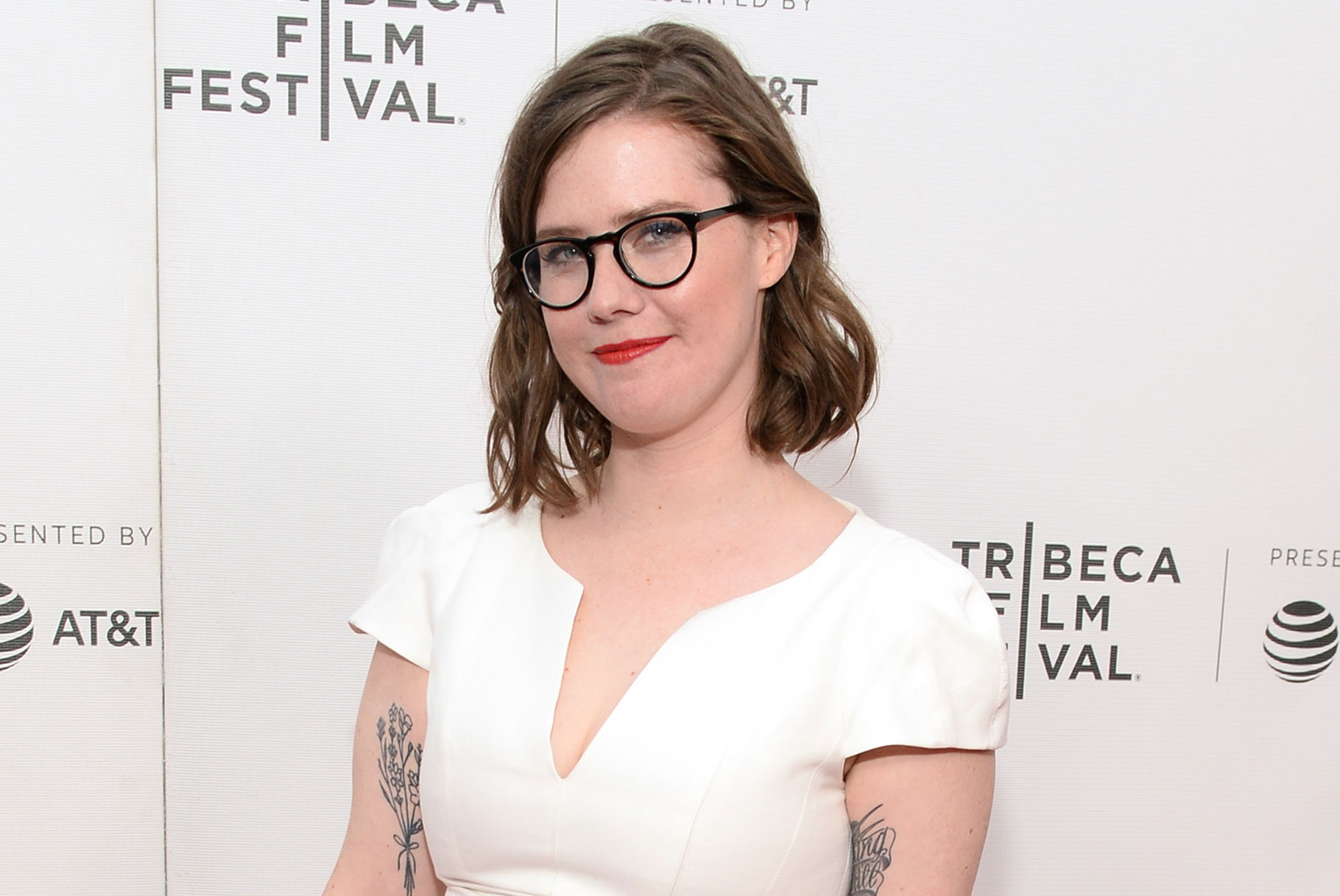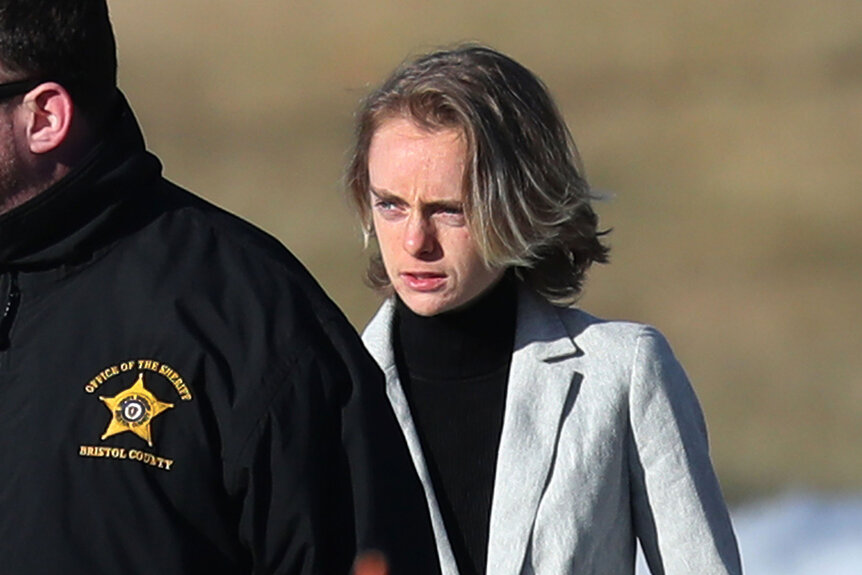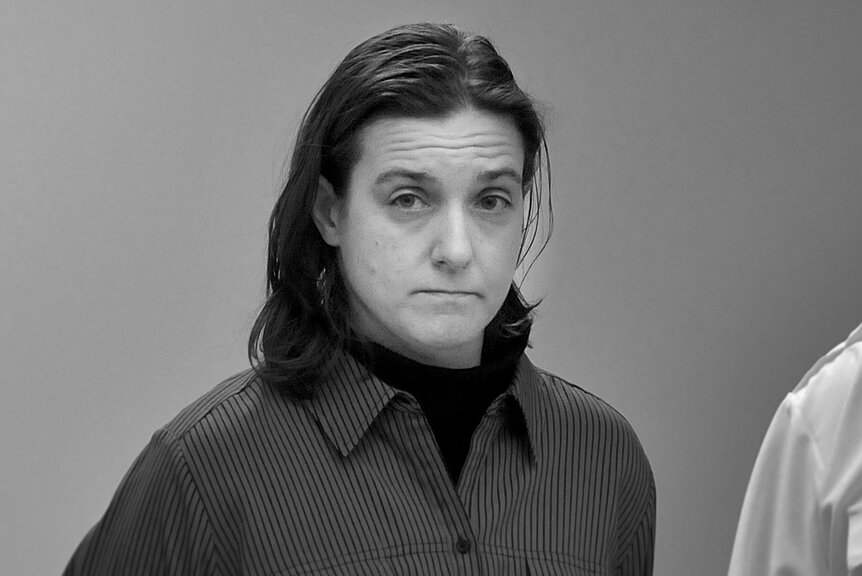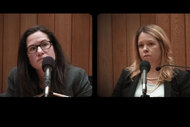Create a free profile to get unlimited access to exclusive videos, breaking news, sweepstakes, and more!
True Crime Documentarian Erin Lee Carr On What Makes Women In True Crime Really Fascinating
Erin Lee Carr has spent her career examining and humanizing complicated female subjects like Gypsy Rose Blanchard, Michelle Carter and now Sonja Farak.

True crime documentarian Erin Lee Carr has a knack for turning bad guys into three-dimensional people that the public can empathize with. She particularly loves doing this when the bad guys are actually bad girls and women.
She directed "Mommy Dead and Dearest” in 2017, an HBO documentary that took a deep dive into the case of Gypsy Rose Blanchard, who killed her mother Dee Dee Blanchard in 2015 after experiencing years of abuse. The film shows how the convicted killer was a victim herself, forced for years to pretend to be sick for her mother's benefit.
Carr, 31, later directed the 2019 documentary "I Love You, Now Die: The Commonwealth v. Michelle Carter." which explored the infamous case of Michelle Carter, who was convicted of involuntary manslaughter in Massachusetts after encouraging her boyfriend Conrad Roy III, 18, to kill himself in 2014. While she was depicted in the media as manipulative and evil, Carr's documentary won praise for showing all sides of Carter’s plight, including her own struggles with loneliness and mental health issues and an allegedly toxic relationship with Roy.
Carr’s 2019 “At the Heart of Gold: Inside the USA Gymnastics Scandal” focused on the underage sexual assault victims of former USA Gymnastics team doctor Larry Nassar.
“How to Fix a Drug Scandal” — available to stream on Netflix — is Carr's latest work and also focuses primarily on women. It starts off with the story of Massachusetts drug lab technicians Sonja Farak and Annie Dookhan, who were caught mishandling evidence in their separate labs in different but shocking ways in 2013 and 2012, respectively. Their work had contributed to tens of thousands of drug-related convictions over a period of years, which were then thrown into question. The docuseries then shifts to the misconduct of two female state prosecutors who attempted to minimize what the drug technicians did.
Carr told Oxygen.com that she loves focusing on female subjects.
“There’s an audience for it and I personally love it,” she said. “As long as people keep watching, that will be my beat, so to speak.”
She said she wants to continue examining cases with women at their center because there aren't enough in-depth stories about women out in the world.
“It’s important that women make films about women,” she said. “Just as we need to have directors of color make stories about people of color and there has been movement in that arena. This is something that I just feel very drawn to.”
She said that when she’s working on any project or thinking about what she wants to work on next, it always ultimately comes back to women.
“Stories about women are incredibly key,” she said. “That’s what I’m interested in.”
Carr noted that while it’s important to have women dive deep into complicated female subjects, it’s something men can do as well. She cited male English documentarian Nicholas Broomfield as one who did so successfully in his 1993 documentary about female serial killer Aileen Wuornos, entitled “Aileen Wurnos: The Selling of a Serial Killer.”
“He so clearly and so passionately got everything that she was, and it was just so intimate,” she said. “The last interview he does with her, where she’s either having a psychotic break or the people in the prison were trying to torture her — it is some of the most haunting piece I’ve ever seen. I’ve rewatched it like 30 times.”
Carr said Farak's story inspired her to work on “How to Fix a Drug Scandal.”
For years, Farak would get high off the illicit drugs housed in her Amherst lab, then continue working on testing samples confiscated from defendants in criminal cases.
“When I first started thinking about it, I could not imagine being high on liquid methamphetamine and hiding it day in, day out,” Carr said.
“There was something so tragic but also surreal about this story,” Carr noted, indicating that her former struggles with alcohol factored into her fascination with Farak.
“It takes a very specific type of person and a strength to be able to hide such an intense drug addiction for so many years,” she said. “I just felt so curious and the project took off from there.”
The docuseries dives into Farak’s childhood and psyche and turns her from a two-dimensional criminal into a three-dimensional tragic, and even likable, figure. Carr told Oxygen.com that she spent a lot of time humanizing Farak, whom she feels is a good person despite her flaws.
"How to Fix a Drug Scandal," of course, comes amid the backdrop of the global coronavirus pandemic, but Carr believes audiences are craving a bit of escapism.
“I think people just want to get inside a crazy story and that’s what 'Tiger King' has shown us in a very extreme way,” she said.
The prolific filmmaker — she's already directed six documentaries — added that, like everyone else in the world, even she is struggling to work during the pandemic.
“I would be a complete robot psychopath if I was like, ‘Yeah I’m doing great, my focus is all there,’” she confessed to Oxygen.com. “It’s difficult to do the same level of output that you usually would because your brain is trying to factor in all these other things and process them as you’re trying to do your job.”
She believes that the pandemic, despite its bleakness, will not steer people away from true crime.
“I think there’s an argument to be made that maybe because we are living in such a dark reality that we won’t want to watch true crime on our off time,” she said. "I just don’t think that’s the case.”
She said she gauges her many “true crime rabid” friends as a litmus test.
“They’ve all gone through some darkness,” she said. “I think people will continue to be fascinated by these stories and the storytelling will just continue to evolve so that there are more human elements in them. It’s not about all the details of what happened to the girl that night but it will go into the details of who the girl was. That’s what I’m hopeful about."
While Carr didn’t disclose what she is working on now, she teased it’s a “beautiful top secret” project.




















